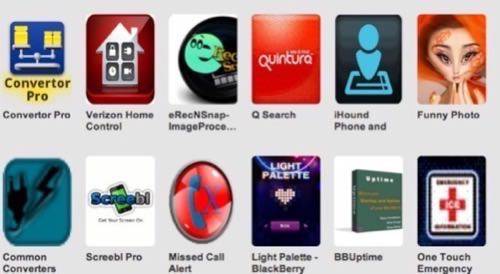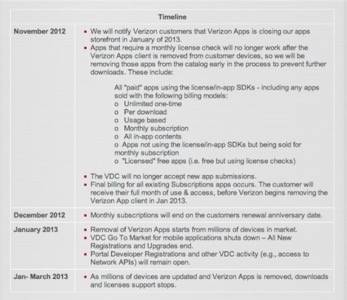
Verizon announced on Monday that it is discontinuing its Verizon Apps program on Android and BlackBerry smartphones. By March 2013, Verizon will shut down its app store on Android devices and uninstall any apps already on users devices. This is surprising in many ways – and also indicative of the current direction of the mobile app market.
Deflating The Balloon On 3rd-Party App Stores
As I watched the mobile market it grow over the last several years, I developed a theory. The business of technology is, at its essence, a copycat game. Companies see something that has been successful for someone else and they rush to create something similar to it to grab their own piece of the pie. This creates what I call the “Balloon Effect.” This not a bubble, which implies that the entire model will eventually pop (to the detriment of everyone). Instead, innovators create a market and then others rush in – and the segment expands. Eventually, the balloon grows too big and crowded for the market to keep inflated – and weak players die off, are acquired or decline to irrelevancy.

We are in the expansion phase in almost every segment of the mobile industry. App development tools, mobile ads, cloud services, enterprise services, location services and more are all still growing and attracting new copycat entrants. (Note that copycats in this game are not necessarily nefarious, idea-stealing spammers – though those do exist.) Verizon certainly was hoping that its app store, pre-installed on some Android devices, would be a great way to spread its own apps.
But the leading U.S. mobile carrier has apparently realized that its Apps store was an unnecessary redundancy within the Android, Amazon and BlackBerry environments. Android’s Google Play and the BlackBerry App World do well enough for the purposes of most users and the companies that control those platforms continue to push their customers to the official distribution channels.
Is the Verizon App Store only the first shoe to drop in a market adjustment of the third-party app store segment? It’s too soon to tell for sure, but other app stores like Getjar could be vulnerable, depending on how companies like Google and Apple set restrictions to third-party apps going forward.
The First Carrier To Blink
Verizon Apps is the first U.S. carrier store to leave the market. This is significant because Verizon has always been adamant about making sure it has its own apps installed on devices from its manufacturing partners. Pre-installing those apps has long been a requirement for all manufacturers that wished to sell devices through Verizon (Apple was a significant holdout).
Sadly, the demise of Verizon Apps means only that the carrier is getting rid of the app store application, not all of its pre-installed apps. (Verizon is replacing its Apps store with a new service called AppsLuvr – a discovery engine where consumers can search Google Play for apps they may want to download.) The “bloatware” that consumers associate with pre-installed apps will continue. Those pre-installed apps bring significant revenue to the carriers, so there’s no way they will give up their hold on the apps installed on devices on their networks. That’s true no matter what the device manufacturers or the operating system creators – or their own customers – want.
For the time being, at least.

The carriers are not quick to acknowledge failure. Even if a product or service is not catching, they often try to keep pushing it down everyone’s throat, if only to justify their investment. We think of companies like Google and Amazon as being extremely large, but telecom carriers like AT&T and Verizon pull in more then twice the revenue of those tech companies. The carriers remain the gatekeepers to the U.S. mobile market in the U.S.
And yet, if Verizon was forced to realize that its App Store was fighting a losing battle, maybe there is a chance that carriers will become more responsive to consumer usage patterns. If people were actually using Verizon App, the company would have never killed it. Will that happen with other bloatware apps, such as AT&T’s Ready2Go?
One can only hope.









